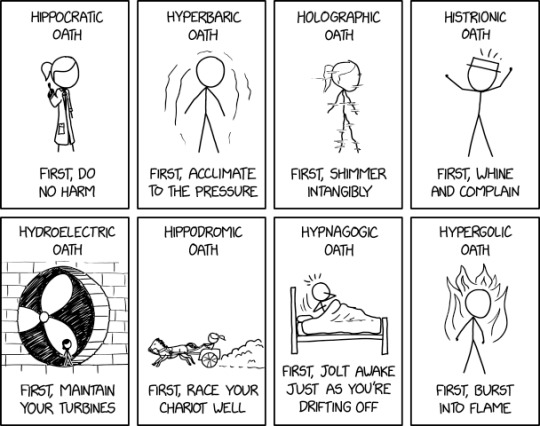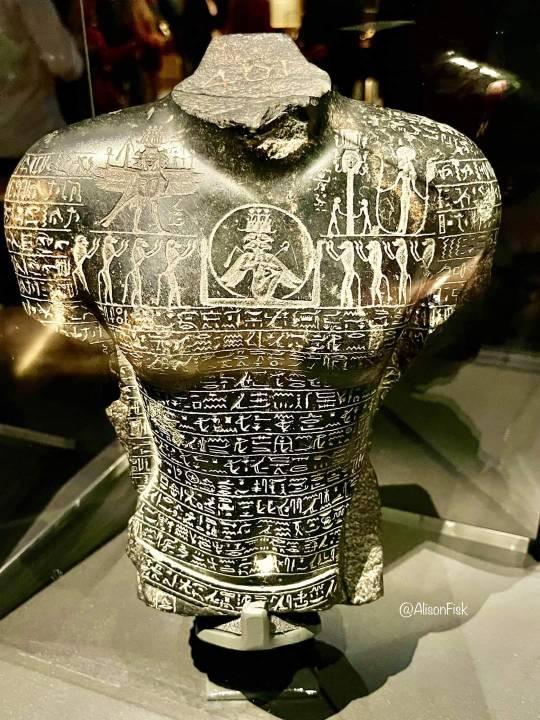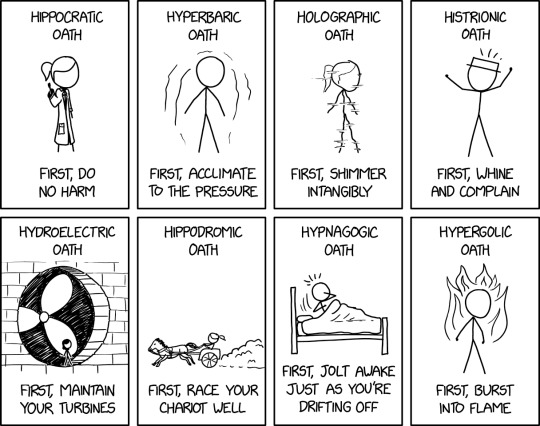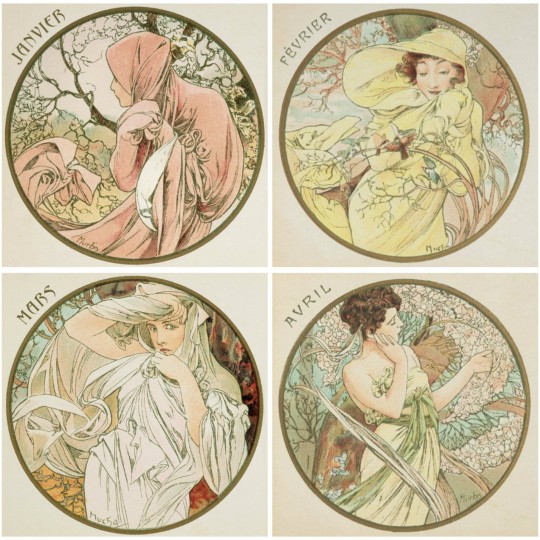#hermeneutic
Explore tagged Tumblr posts
Text

Heidegger's hermeneutic iteration
"Heidegger saw the hermeneutic process as cycles of self-reference that situated our understanding in a priori prejudices"
0 notes
Photo

Professional Oaths
Subtext: "Interpretations of the Hermeneutic Oath differ."
0 notes
Text
The Postmodern Attack on Biblical Ethics
It is not possible to live the faithful Christian life while compromising with the Postmodern ideology. Postmodernism is explicitly opposed the biblical ethics. https://rumble.com/v3oclxg-the-postmodern-attack-on-biblical-ethics.html
View On WordPress
#Authority#Bible#Christian Living#Culture#Denominationalism#Doctrine#Evangelism#False Doctrine#Gospel#Hermeneutic#Knowledge#The Bible
0 notes
Text

Ancient Egyptian statue of Pa-Maj. The basalt torso is entirely covered in ‘magical’ hieroglyphic texts and images of gods. 350-300 BC.
The engraved texts are incantations to be recited out loud for healing and protection against harmful creatures such as snakes and scorpions. Similar protective spells are written on ‘Horus stelae’.
#ancient egypt#pyramid#light#magic#ancient#alchemy#energy#kundalini#ascension#consciousness#technology#engineering#archaeology#archeology#esoteric#hermetic#hermeneutics#witchcraft#monolith
187 notes
·
View notes
Note
what are your thoughts on liberation theology?
“the catholic who is not a revolutionary is living in mortal sin”
122 notes
·
View notes
Text

Interpretations of the Hermeneutic Oath differ.
Professional Oaths [Explained]
Transcript Under the Cut
[8 Panels in a grid.]
Hippocratic Oath [Ponytail in a doctor's coat with her arm raised in pledge.] First, do no harm
Hyperbaric Oath [Cueball shaking.] First, acclimate to the pressure
Holographic Oath [A hologram of Ponytail fitzing in parts.] First, shimmer intangibly
Histrionic Oath [White Hat yelling, fists upraised.] First, whine and complain
Hydroelectric Oath [Megan sat in the cut-out wall for a giant turbine.] First, maintain your turbines
Hippodromic Oath [Ponytail in a chariot pulled by a horse.] First, race your chariot well
Hypnagogic Oath [Cueball, half-risen from bed in shock.] First, jolt awake just as you're drifting off
Hypergolic Oath [Cueball on fire.] First, burst into flame
#xkcd#professional oaths#xkcd 2843#webcomics#hippocratic oath#doctors#hyperbaric#holograms#histrionics#hydroelectric#turbines#chariots#hippodrome#hypnagogy#hypergolic propellant#hermeneutics
679 notes
·
View notes
Text
Why Star Trek: Strange New Worlds is a (very good) fanfic
I like SNW, for the most part. I enjoy the characters and it's nice to see largely episodic Trek again. But the idea that it fits into the existing canon is pretty easy to debunk.

Honestly, Paramount is promoting an illusion when it presents canon as a singular thing which runs from series to series as an unbroken continuity. It's not just a matter of minor glitches; those happen within episodes. It's that each show is written by different people with a different idea of how the universe even works.
Memory Alpha is partly to blame for this. Instead of actually recording what happens in the show, they construct timelines and smooth over inconsistencies to give the impression that the number of moons Vulcan does or doesn't have is a matter of simple canonical record, which it isn't. (This is an attitude that bugs me in Bible scholarship too. We can't just say "John says Jesus was crucified sometime after noon and the synoptics say nine am," oh no. They fiddle with it and explain it away and then tell us Jesus was on the cross from noon to three like that is an established historical fact.)
Anyway, if we approach Star Trek like atheist scripture scholars, we should be taking each series as a separate account with its own slightly different worldview. This was obvious by the time Enterprise came out. TOS takes place in a time not long after the invention of the warp drive, where the Enterprise is one of only twelve starships and sent on a long-range mission far beyond where humans had traveled before. Their technology is new and clunky and there's an obvious frontier feel. You really gonna tell me the NX-01 had virtually all the same tech and the warp drive a hundred years earlier?
No, and if we want to play it Watsonianly (as I prefer to) we should say that all the time travel monkeyed irreparably with the timeline, such that the Eugenics Wars happened in the 90s but then, after many different time travel events, it has been moved back to the 2040s or so. First Contact moved earlier, maybe WWIII won't happen at all. And so on.
Therefore, when you're dealing with TOS there shouldn't be this pressure to try to fit SNW events into it. You shouldn't feel the need to make Spock a guy with a long heterosexual history in a TOS fic—you can simply read him as the gay or ace guy he is clearly written as.

This is clear from the very first episode of SNW, where T'Pring proposes to Spock. In TOS they've been more than betrothed since the age of seven. There's never any sign that those two had an actual relationship. If they did, why is the only picture Spock has of her, of her as a child? That would be pretty weird!

"Charades" made this even more obvious as T'Pring's mother objects to their relationship. She set it up! In arranged marriage cultures, you don't have to impress your mother-in-law, you have to impress your betrothed!
The Chapel thing, too, is an issue. First off, her reason for being on the Enterprise in TOS is to search for her fiance, Roger Korby. If she'd been on the Enterprise before, under Pike, that would be a really odd thing to say.
But her relationship with Spock is of course the really odd part. The creators were trying to make a reason for why she pines after him in TOS. But she doesn't pine for him like an ex, she pines for him like she's curious. It's very apparent that she hasn't had sex with him before:
CHAPEL: Mister Spock.
SPOCK: What is it, Nurse?
CHAPEL: Mister Spock, (takes his hand) the men from Vulcan treat their women strangely. At least, people say that, but you're part human too. I know you don't, you couldn't, hurt me, would you? I'm in love with you, Mister Spock. You, the human Mister Spock, the Vulcan Mister Spock.
SPOCK: Nurse, you should—
CHAPEL: Christine, please. I see things, how honest you are. I know how you feel. You hide it, but you do have feeling. Oh, how we must hurt you, torture you.
SPOCK: I'm in control of my emotions.
CHAPEL: The others believe that. I don't. I love you. I don't know why, but I love you. I do love you just as you are. Oh, I love you.
SPOCK: I'm sorry.

These two straight up haven't dated before.
Taking points like this, it's clear that we don't really need to worry about the fact that Spock's character is a little bit off. They're not rewriting his character; they can't, his character is a finished project between Nimoy and the TOS writers. They are writing their version of his character, which is different from mine. I daresay mine is a little more consistent with the source material than theirs, but not all fics are trying to be exact, and they're riffing off the idea in their own way.
As a fanfic writer, my conclusion is this: when I write a TOS fic, it uses TOS canon. Anything I steal from SNW is simply because it's cool, the way I borrow from other fics or from the novels. I needn't feel obliged to put Michael in every single fic about his childhood. I can write him as a virgin before Kirk if I want to.
Meanwhile I can also write an SNW fic where he leans into his human side and experiments with women and waxes his chest if I want to. And if I push his characterization more toward what I think it should be rather than what is on the screen, well, that's my business!
I hope I do not see a trend in fic toward so much respect for paramount's official universe canon that everyone feels like they have to stay consistent with SNW all the time. TOS isn't so why should your TOS fic be?
#star trek#star trek strange new worlds#star trek snw#spock#star trek tos#fanfic#canon#star trek exegesis#hermeneutic of discontinuity
129 notes
·
View notes
Note
I'm really curious, obviously most catholics believe that the pope speaks for god (that's at least the teaching), but what is the reasoning when the current teachings don't agree with previous ones? In the past there have been rifts where there are two "popes," and obvs there are some people who think the modern popes are all fake, but for your average catholic is it assumed that the previous teachings were mistaken? Or that God gives different teachings based on what is needed at the time?
This is such a difficult question to answer. This is where the idea of "Hermeneutic of Continuity" vs "Hermeneutic of Rupture" comes in. The idea being that there are different interpretations (to scripture) and what is "received." Not from one's own mind, but what is gotten from the spirit.
It's not that other past interpretations are "wrong" but a new development of the interpretation.
When Vatican II happened in the 1960s, it was a very long process. Further lengthened by the rule still in place that all official discussion must take place in Latin. There were still many priests that were almost fluent in Latin and some that only spoke it during Mass. Every "change" must have theological backing. Almost every cardinal during the council brought their priest secretaries and attended all the additional theological lectures. Theologians were shipped to Italy to teach the cardinals about their faith so that each change made was an informed one.
I think the general consensus is that God illumines things at the right time. This is one such topic that people study for years. Exegesis is not easy for me to wrap my brain around. That's why I'm a Franciscan.
#Anonymous#christianity#catholic#Hermeneutic of Continuity#Hermeneutic of Rupture#long post#long read
60 notes
·
View notes
Quote
The line between the respective domains of epistemology and hermeneutics is not a matter of the difference between the "sciences of nature" and the "sciences of man," nor between fact and value, nor the theoretical and the practical, nor "objective knowledge" and something squishier and more dubious. The difference is purely one of familiarity. We will be epistemological where we understand perfectly well what is happening but want to codify it in order to extend, or strengthen, or teach, or "ground" it. We must be hermeneutical where we do not understand what is happening but are honest enough to admit it.
Richard Rorty, Philosophy and the Mirror of Nature
#philosophy#quotes#Richard Rorty#Philosophy and the Mirror of Nature#epistemology#hermeneutics#familiarity#understanding#knowledge
19 notes
·
View notes
Text
So, because I already said that Viktor is art nouveau, I was looking through my book of Mucha's paintings to see if I could find something that might've inspired Viktor's Jesus look (Also fun fact, Mucha was born in what today would be the Czech Republic)
And the closest ones I found was the series The months, look



Or maybe I'm just losing my mind lmao
#ramblings#arcane meta#arcane#viktor#viktor arcane#viktor league of legends#art nouveau#I was going to write the thing about Jayce being Art Deco#But then I got sick lmao#And then I started writing it. but I had this idea and I realized it didn't fit with the whole art deco thing lmao#Also. Might take a while to write the Jayce and Art deco thing because I now realize that I'm going to have to write about Jinx and Mel lmao#and it might be looooong#everyone say thanks to my Jayvik obsession for making me remember my hermeneutics class. and the semiotics class too lmao#I. in fact. went to university#and studied art and design#and it was free because I live in Mexico
37 notes
·
View notes
Text
It is possible to see how pre-emptive testimonial injustice and testimonial smothering contribute to ignorance regarding suicidal people's experiences, because their voices remain relatively absent from the public sphere or are transformed or adapted to be more "acceptable", in turn fostering hermeneutical injustice and leading to greater difficulty in theorizing suicidist oppression–and hence perpetuating the deadly silencing circle of epistemic violence.
— alexandre baril, suicidism: a new theoretical framework to conceptualize suicide from an anti-oppressive perspective
#suicidism#sanism#epistemic injustice#hermeneutical marginalization#anti oppression#anti psychiatry#anti psych#words words words#quote#quotes on tumblr#tw sui talk#tw suicidality#fountain pen
20 notes
·
View notes
Text
Anyone have a good source (ideally article-length, shorter than a book or monograph, but if the only sources are long, they're long) for an analysis of the name changes in the Bible? Abram to Abraham, Sarai to Sarah, Saul to Paul, etc. Do these just kind of represent being "born again," with the name God gives you superseding the name your parents gave you, indicating a deeper-than-normal filial relationship with God? Is it like your name actually has a bunch of compressed data about other stuff in it, and turning Sarai into Sarah ends up making her fertile once it runs through the relevant hashing protocols? What's going on with these name changes?
The sources I can find tend to be like... church websites, which tend to just be like "here's what God was doing" (and often it seems disturbingly close to "God was making a bad Hebrew pun") rather than delving into the significance of names in the contemporary social context and such.
12 notes
·
View notes
Note
Matthew 22:39
If you don't love yourself, you don't love your neighbor.
Connor, I know that's you.
The first person who interpreted this verse to command what you want me to believe it does was Erich Fromm in the 1970s, and if you don't believe me, I'd recommend you pick pick up The Danger of Self-Love by Brownback. I don't consider a 20th-century humanist to be the final authority on Biblical hermeneutics.
This verse is a single command, second to the Shema, as the context demonstrates. Nothing in the wording directly implies that it is a command to love oneself, but rather it is for listeners to love other people as they are already loved.
#biblical hermeneutics#Anon ask#Anon is angry#Because they have failed to sell me humanist concepts such as self-love#self-love#self love
20 notes
·
View notes
Text

“The excellence of the soul is understanding; for the man who understands is conscious, devoted, and already godlike.”
~ Hermes Trismegistus
#hermes trismegistus#hermeneutics#consciousness#light#energy#alchemy#magic#esoteric#ascension#spiritual awakening#spirit#book quotes#quotes#ancient#godhood#enlightenment#kundalini awakening#spiritual journey#spirituality#chakras#meditation#quoteoftheday#books#age of aquarius#golden age
140 notes
·
View notes
Note
forever thinking of god’s name being i am and i will be and i was. god in that sense is more like a verb, is he not?
yes—hashem’s tense with exod 3:14’s ʾehyeh ʾašer ʾehyeh is qal imperfect. a nonfinished verb
31 notes
·
View notes
Text
Proust, Joyce, Faulkner, Rilke, Lawrence, Gide…one could go on citing author after author; the list is endless of those around whom thick encrustations of interpretation have taken hold. But it should be noted that interpretation is not simply the compliment that mediocrity pays to genius. It is, indeed, the modern way of understanding something, and is applied to works of every quality. Thus, in the notes that Elia Kazan published on his production of A Streetcar Named Desire, it becomes clear that, in order to direct the play, Kazan had to discover that Stanley Kowalski represented the sensual and vengeful barbarism that was engulfing our culture, while Blanche Du Bois was Western civilization, poetry, delicate apparel, dim lighting, refined feelings and all, though a little the worse for wear to be sure. Tennessee Williams’ forceful psychological melodrama now became intelligible: it was about something, about the decline of Western civilization. Apparently, were it to go on being a play about a handsome brute named Stanley Kowalski and a faded mangy belle named Blanche Du Bois, it would not be manageable.
— Susan Sontag, from "Against Interpretation"
#susan sontag#sontag#lit#literature#against interpretation#proust#joyce#faulkner#rilke#lawrence#gide#hermeneutics#art#a streetcar named desire#elia kazan
54 notes
·
View notes